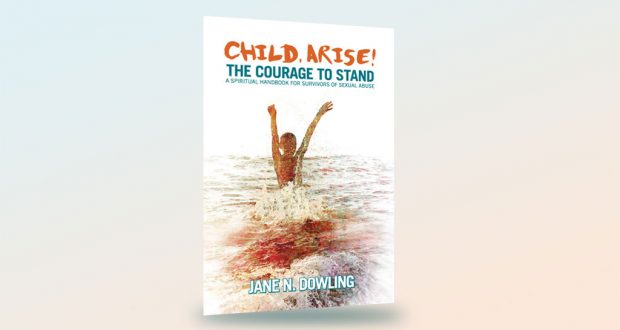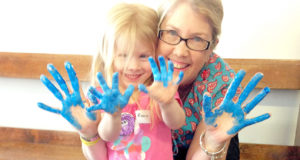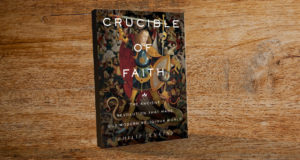Jane Dowling’s Child, Arise! explores faith, sexual abuse and how the author’s relationship with Jesus assisted her during the long process of healing after suffering abuse from a family member and a priest. Rev Heather Griffin reviews.
Child, Arise! The Courage to Stand is, according to its full title, a “spiritual handbook for survivors of sexual abuse” but it is more than that: it’s a handbook of biblical reflection woven with personal stories and opportunities to engage with our own story, whether or not we are survivors of sexual abuse and trauma, but particularly if we are.
Jane Dowling is one of the courageous survivors who came forward during the Australian Royal Commission into Institutional Responses to Child Sexual Abuse to tell her story of having been abused as a child by a family member and then later by a priest.
Somewhat surprising to me is the fact that she didn’t give up on God. At 21-years-old, she entered a community devoted to a life of meditation and reading of the scriptures. For many years she led spiritual retreats focused on enabling people to develop and deepen their relationship with God through prayer and bible reading. It has been her relationship with Jesus that has sustained her during her own long and continuing path of spiritual and emotional healing.
What many of us who have not undergone such trauma fail to realise is that healing comes slowly and gradually for survivors as they are faced, little by little, with aspects of their experience coming from the voice of the still-frightened “inner child” that affect their lives as adults.
Dowling very effectively relates a number of conversations between her “inner child” and the “adult self” as she journeys towards healing. Seemingly ordinary situations can trigger painful flashbacks so she brings both the inner child and the adult self into the presence of Jesus in conscious times of meditation and scripture reflection.
“A very real consequence for survivors, especially those who have been abused by members of the clergy, is a distorted image of God,” says Dowling about the book. “God is often described by survivors as being far away, distant, uncaring, tough, punishing, angry.”
“God is therefore someone who survivors are afraid to trust. Such false images of God were developed as we suffered the traumatic experiences at the hands of our perpetrators. My hope is that through the scriptural reflections in this handbook these false and distorted images we have attached to God and that rightfully belong to the perpetrator of the sexual abuse, can be dismantled so that we can enter into listening to the narratives of our personal story from the perspective of God who relates to us as a close, familiar and, most of all, loving God, for ‘God is love’ (1 John 4:8).”
This book is not a “one size fits all” nor is it meant to be. What it offers, though, are insights from which all of us in the Christian community can benefit—insights into the spiritual and emotional journey lived each day by survivors.
This can and must lead to our communities being there for the long haul with those who have suffered and are still suffering. It means learning what can be helpful as well as what can add to the trauma. This book points us to the source of all hope—our loving God.
Both survivors themselves and those in whom survivors have confided will, I believe, find it a very useful tool. My prayer is that over time other courageous people will also tell their stories so that we who know so little may come to understand. It is in the telling of the story that we can learn. They are the experts. They are the s/heroes. They have much to teach us.
To date, there seems to be few books in this area. I have read two other books which, in very different ways, tell something of the emotional and spiritual journeys of survivors of trauma. Both of them use the term “forgiveness”, which is a term fraught with difficulty in this context, and which Dowling seems to have avoided. Perhaps the better term to use is “letting go”, letting go of that which controls you. In Dowling’s terms, “It is finished”. This is a place that each person comes to themselves in their own time and in their own way.
The role for the rest of us is simply to stand beside them and affirm them in their journey. The other books of which I speak are Forgiving the Dead Man Walking by Debbie Morris and The Forgiveness Project: Stories for a Vengeful Age by Marina Cantacuzino.
Rev Heather Griffin
Rev Heather Griffin is the secretary for the Queensland Synod’s Interfaith Relationships Committee.
Child, Arise!
Author: Jane N. Dowling
Publisher: David Lovell Publishing
2016
To purchase visit the Child, Arise! website
 JourneyOnline
JourneyOnline







